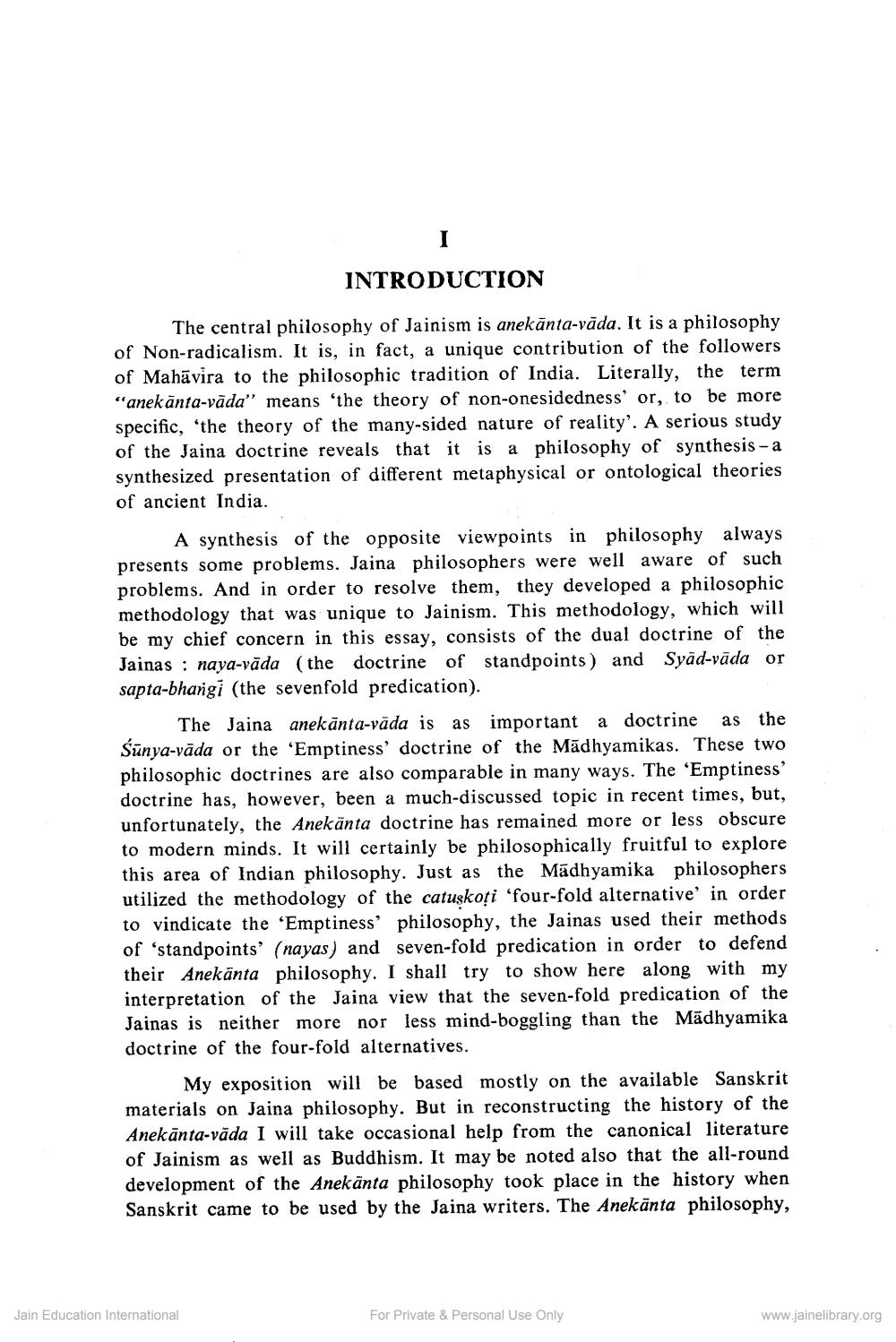________________
INTRODUCTION
The central philosophy of Jainism is anekānta-vāda. It is a philosophy of Non-radicalism. It is, in fact, a unique contribution of the followers of Mahāvira to the philosophic tradition of India. Literally, the term "anekānta-vāda" means 'the theory of non-onesidedness' or, to be more specific, 'the theory of the many-sided nature of reality'. A serious study of the Jaina doctrine reveals that it is a philosophy of synthesis - a synthesized presentation of different metaphysical or ontological theories of ancient India.
A synthesis of the opposite viewpoints in philosophy always presents some problems. Jaina philosophers were well aware of such problems. And in order to resolve them, they developed a philosophic methodology that was unique to Jainism. This methodology, which will be my chief concern in this essay, consists of the dual doctrine of the Jainas ; naya-vāda (the doctrine of standpoints) and Syād-vāda or sapta-bhangi (the sevenfold predication).
The Jaina anekānta-vāda is as important a doctrine as the Sünya-vāda or the 'Emptiness' doctrine of the Madhyamikas. These two philosophic doctrines are also comparable in many ways. The 'Emptiness' doctrine has, however, been a much-discussed topic in recent times, but, unfortunately, the Anekānta doctrine has remained more or less obscure to modern minds. It will certainly be philosophically fruitful to explore this area of Indian philosophy. Just as the Mādhyamika philosophers utilized the methodology of the catuskoți 'four-fold alternative' in order to vindicate the 'Emptiness' philosophy, the Jainas used their methods of 'standpoints' (nayas) and seven-fold predication in order to defend their Anekānta philosophy. I shall try to show here along with my interpretation of the Jaina view that the seven-fold predication of the Jainas is neither more nor less mind-boggling than the Mädhyamika doctrine of the four-fold alternatives.
My exposition will be based mostly on the available Sanskrit materials on Jaina philosophy. But in reconstructing the history of the Anekānta-vāda I will take occasional help from the canonical literature of Jainism as well as Buddhism. It may be noted also that the all-round development of the Anekānta philosophy took place in the history when Sanskrit came to be used by the Jaina writers. The Anekānta philosophy,
Jain Education International
For Private & Personal Use Only
www.jainelibrary.org




